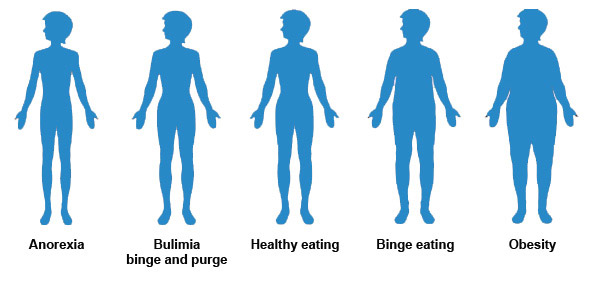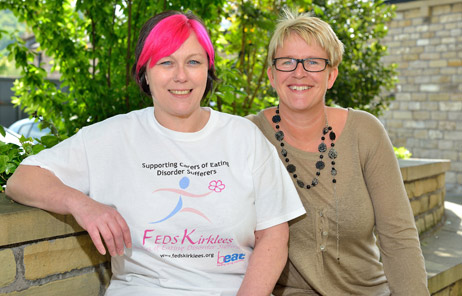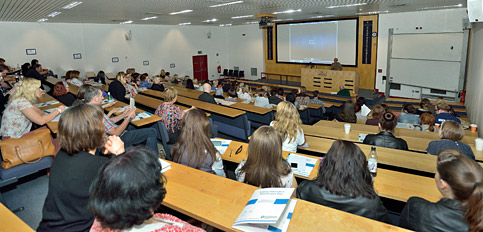Eating Disorder Awareness Day – over 100 attend

Fri, 16 May 2014 11:23:00 BST
University tutor researches the impact an eating disorder can make on close relatives and carers
 Conference co-organiser Cherie Hinchliffe (left) and Fiona Trotter
Conference co-organiser Cherie Hinchliffe (left) and Fiona Trotter
EATING disorders such as anorexia and bulimia have a devastating effect on the physical health of sufferers and on the mental well-being of their stressed-out families. And although the problem is predominantly associated with adolescent girls, older women too can develop disorders. So can men.
The University of Huddersfield already introduces its nursing students to the subject as part of the curriculum and now it has staged a special event that brought together key experts in order to explore strategies to tackle a multi-dimensional problem.
A range of specialists contributed to the Eating Disorder Awareness Day that was co-organised at the University by its field leader for mental health nursing, Fiona Trotter, alongside Cherie Hinchliffe, who founded the Huddersfield-based carers’ support group FEDS (Families of Eating Disorder Sufferers).
Cherie has close links with the University, where she regularly speaks to nursing students, and at the Eating Disorder Awareness Day she described her organisation to the 100-plus people in attendance. They came from throughout the region and included a wide range of health care professionals, including midwives, plus workers in the education, local authority and voluntary sectors.
After an introduction from Huddersfield MP Barry Sheerman, speakers included consultant psychiatrist Dr Kay Harvey; Dr Nicola Dawson and Lisa Stead, of Bradford’s Community Eating Disorder Service; dietician Pauline Fyffe; and Dr Russell Delderfield, whose session was entitled Men get eating disorders too.
There were also sessions from school nurse Bev Atkinson, who explored the ways that health and education can work together; and from Gemma Fieldsend, who described the role of the wellbeing service at the University of Huddersfield, which provides support for students experiencing eating disorders.
Also, there were special insights via video link from eating disorder sufferers, who described their experiences, while carers spoke about the effect on their lives.
Eating disorder research
 The impact that an eating disorder can make on relatives and carers is an important dimension of the research being conducted by the University’s Fiona Trotter.
The impact that an eating disorder can make on relatives and carers is an important dimension of the research being conducted by the University’s Fiona Trotter.
“We know quite a lot about people’s journeys into eating disorders, but we know much less about the effect it has on their wider family,” she says.
“The language that these family members use to describe the eating disorder is very revealing. They describe it as a heroic struggle or compare it to climbing a mountain, or they talk in terms of destructiveness. It is very aggressive language, used to describe a sense of hopelessness, fear, loss or grieving.”
Fiona has interviewed a wide range of people, including the parents of children as young as nine who have developed eating disorders. She has also explored the experiences of a grandparent and has spoken to a male eating disorder sufferer, whose obsession began when he tried to shed weight so that he could more efficient at motor sport. Eventually he developed an extreme disorder, until fortunate enough to be referred to a community service.
“His story is an eye-opener for some people, because eating disorders are mostly still associated with teenage girls. But we are becoming more aware of disorders in men,” said Fiona Trotter, who added that sufferers also cover a wide age range.
“It predominantly starts in adolescence, but can strike at any age – women as old as 70 are known to have developed eating disorders.”
Fiona’s recorded audio-visual interviews – in which the identities of the speakers are concealed – will build into a valuable teaching and research resource for nursing students at the University of Huddersfield.
Meanwhile, she is concerned that support for families and carers is not as widely available as it should be.
“NHS services are there for people who have eating disorders, but there is less available for those around them – and they are perhaps suffering almost as much.”







